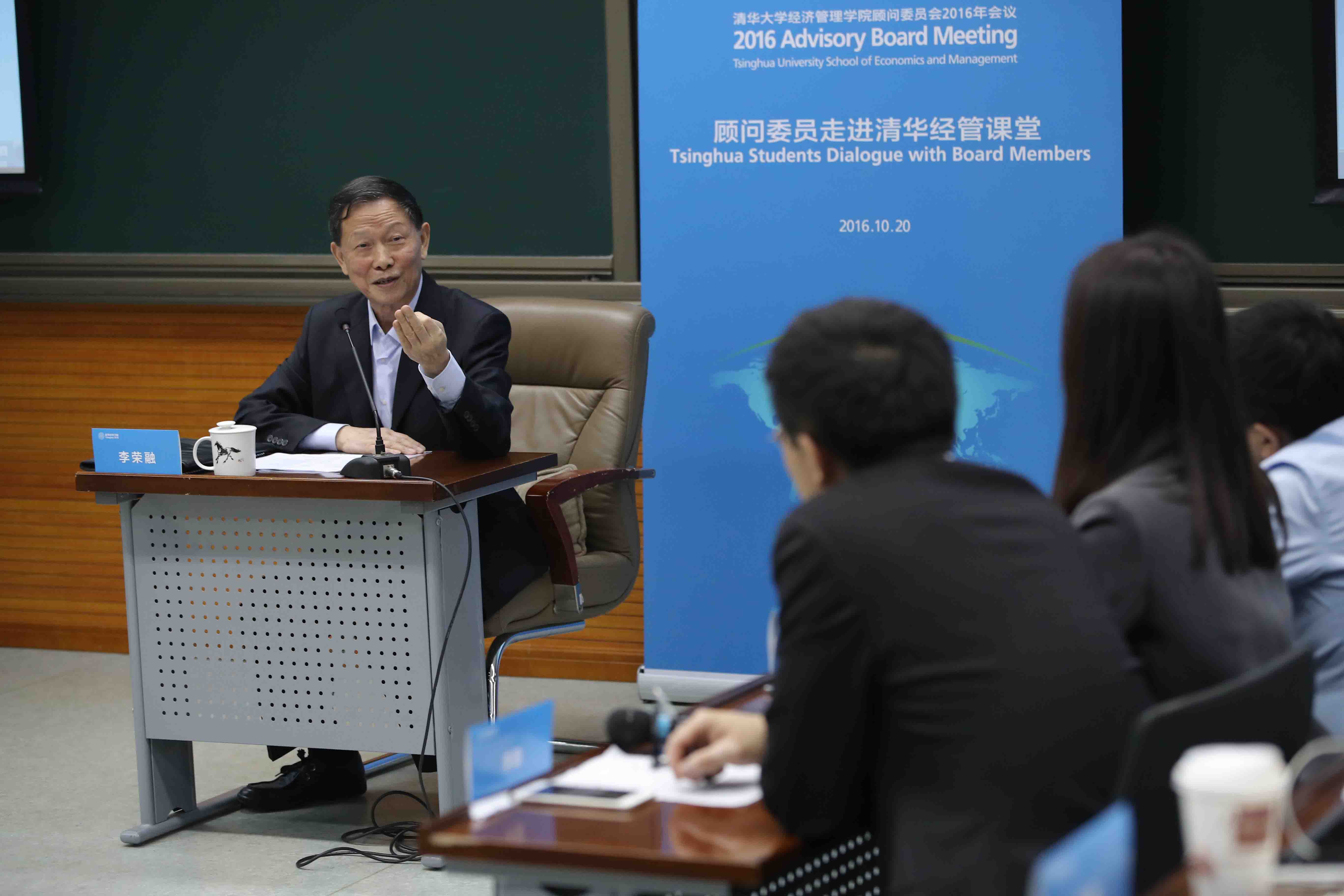Dennis
Ye, GMBA Class of 2017

This
article is part of a series covering Tsinghua Student Dialogues with Advisory
Board Members. These dialogues took place on October 20, 2016, in association
with the larger Tsinghua SEM 2016 Advisory Board Meeting.
I had the
privilege of attending Rongrong Li’s Advisory Board lecture. Mr. Li is the former
Chairman of the State-Owned Assets Supervision and Administration Commission,
having served from 2003 until stepping down in 2010. During his tenure, the
total value of state-owned enterprises (“SOEs”) also increased from 7 trillion RMB
in 2002 to 24 trillion RMB in 2010, with profits increasing from 241 billion RMB
to 1.14 trillion RMB. I was especially intrigued as a Singaporean to learn from
someone who has so much knowledge in reforming China’s SOEs.
Mr. Li’s lecture
was entitled, “Who is the Best Leader,” which he distilled as the one who is
best at mobilizing and allocating resources, whether those resources be human,
financial, material, or non-material in
the form of technology and management. Notably, “Who is [the] best leader” has now
become a global contest. Mr. Li advocates that each leader sift through her or
his practical experiences and academic learning to create a personalized brand
of leadership, which must also coalesce with the unique style of an organization.
Mr. Li has worked for both the private and public sectors and as a politician, and
he drew from Maoist thought to explain his own philosophy.
Mr. Li related a
spectrum of interesting personal experiences, such as his most significant
challenges when working at an enterprise over an 18-year period, with one
investment proposal involving an eight-year approval process. He also dispensed
advice from the voice of his experience such as, “Pay must be commensurate with
responsibility,” something that China still struggles with but that
Singaporeans may take for granted with umbrage. Time management repeatedly
surfaced in Mr. Li’s talk, as he emphasized that how well leaders use their
time and their delegating of non-key functions to others is key. Perhaps what struck
the audience was the practical wisdom and interpersonal skills he needed to perform
well in a diversity of circumstances.
One of Mr. Li’s
pivotal achievements was in converting the government advantage of SOEs into a
commercial advantage; during his tenure, the number of SOEs listed among
Fortune 500 companies rose from six in 2003 to 30 in 2009. He argued that
flexibility and endurance is important to fulfilling one’s ideals and becoming truly
accomplished. Finally, he noted, one needs ideals and dreams in order to sustain
the hardships and criticism that leaders will inevitably face – a sobering but
worthwhile charge to those of us preparing to fill precisely such roles.